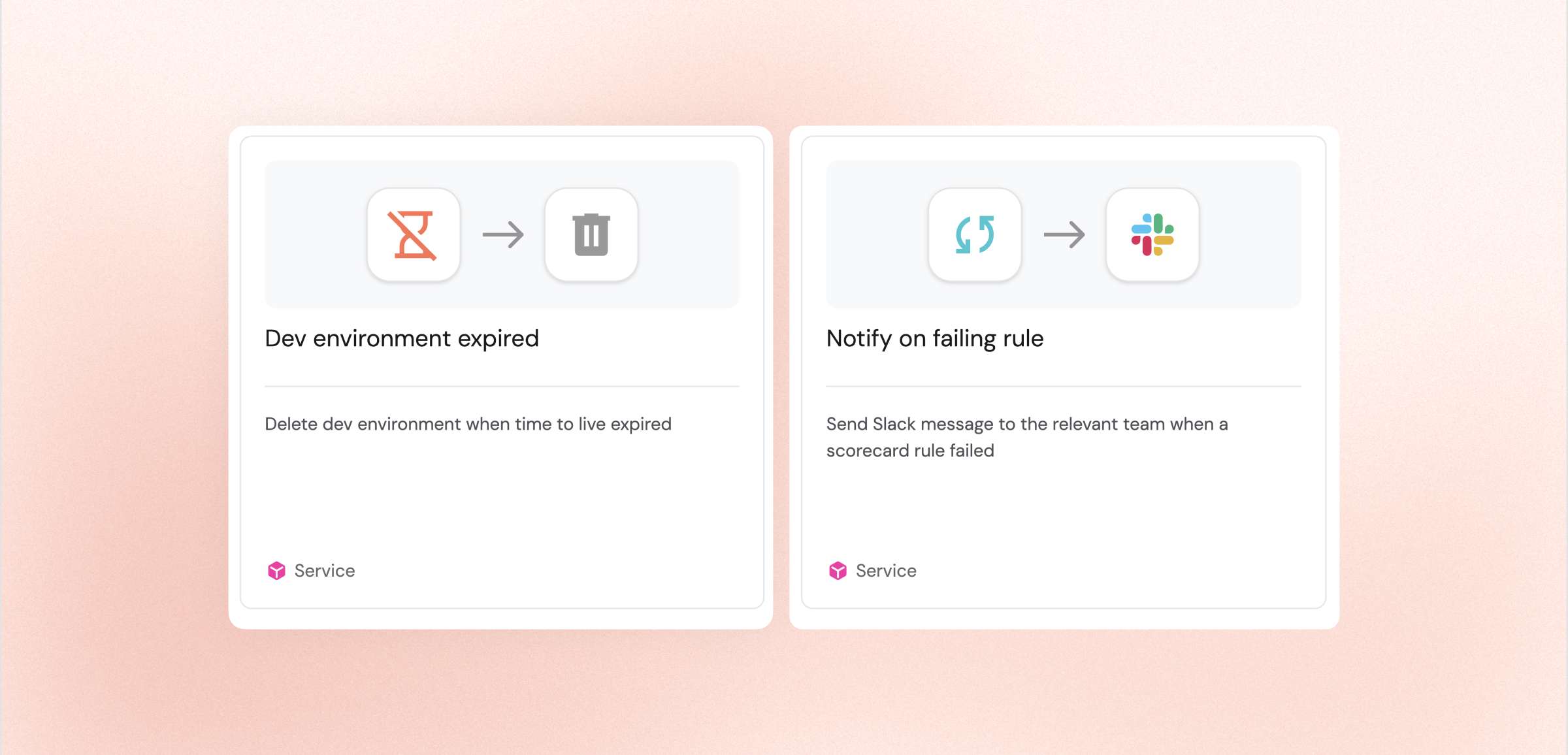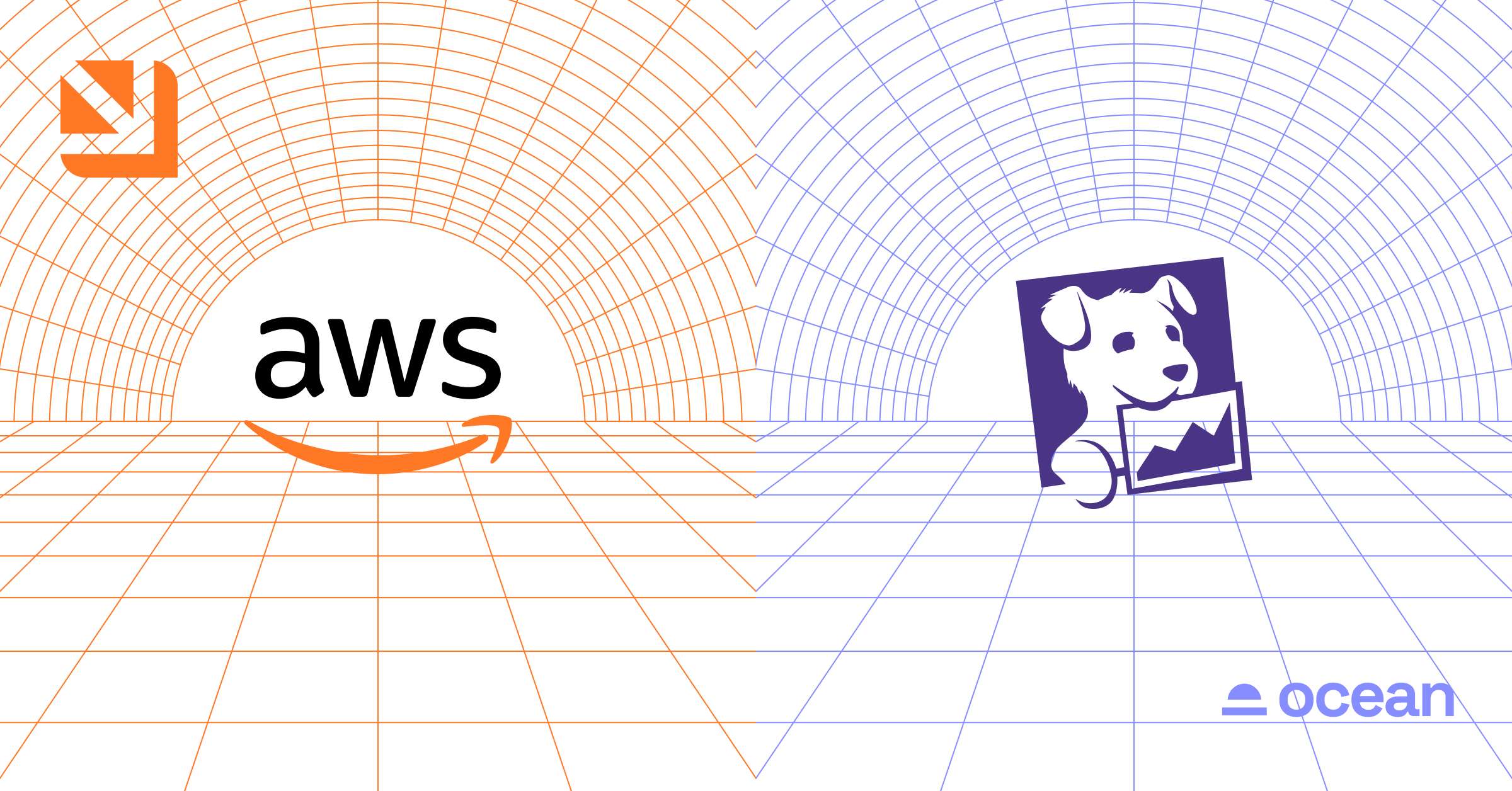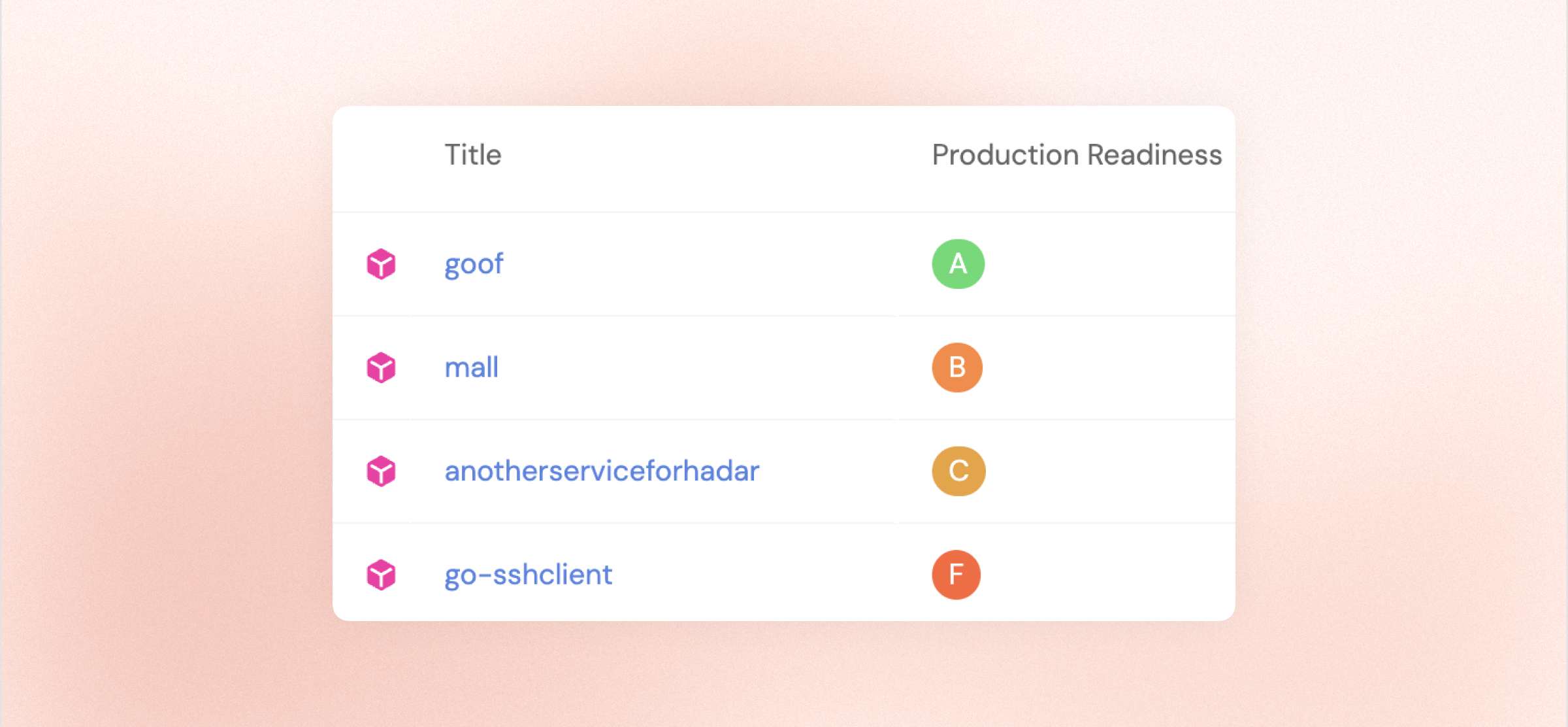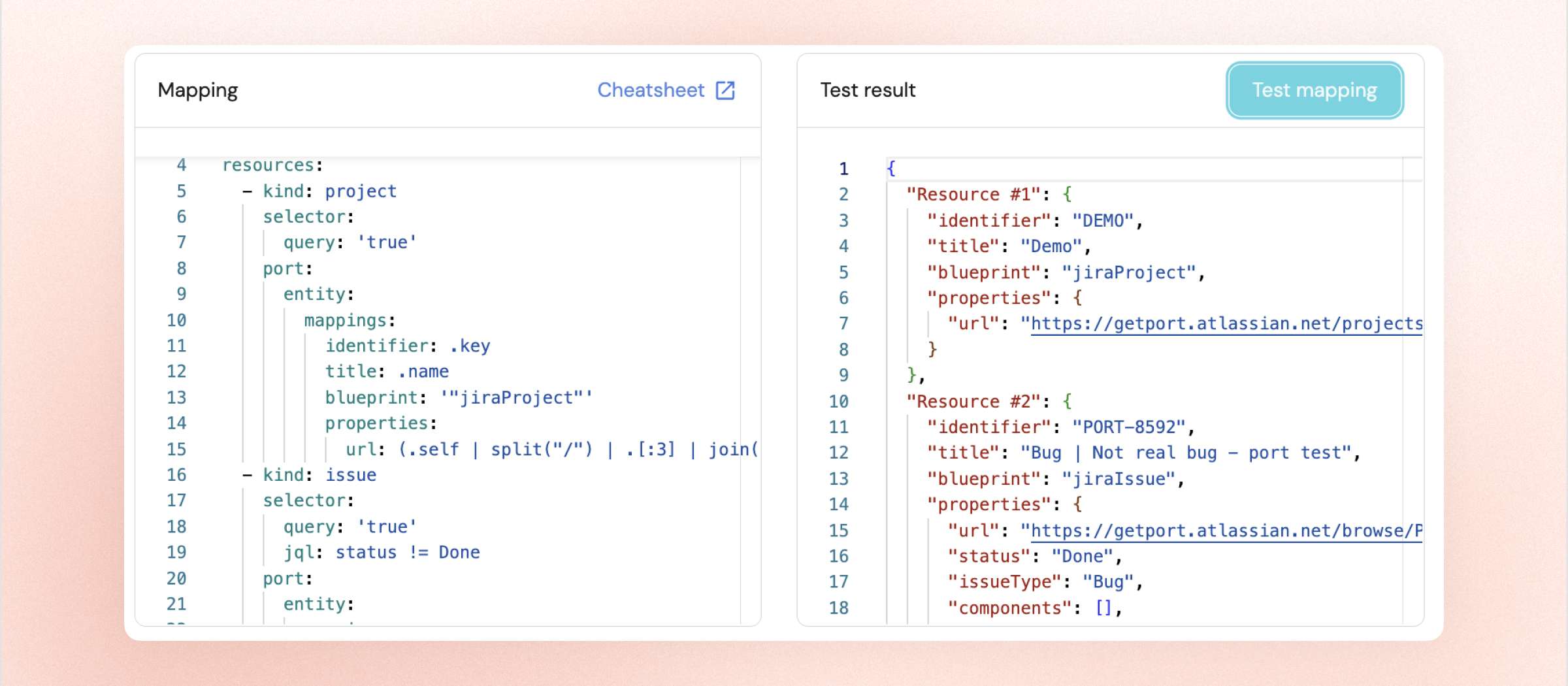These release notes mark a significant milestone for Port: automations. Ever since we began developing Port, we knew that the software catalog is at the core of the portal, that it is real-time, and that it contains important context other tools don’t have. The next logical step was leveraging this power for automations, which were possible in Port but complex. These release notes contain the automations feature. It is meant to help you realize the power of the portal. Stay tuned: we have more to do on the automations front, and we will.
Biggest
Automations
⚡️
We are excited to unveil our new Automations feature, designed to streamline and enhance your developer workflows. Automations allow you to automatically trigger workflows, alerts, and notifications based on changes within the software catalog, such as a new entity being created, a timer that expired, a scorecard change, or any other change in existing entity data. See docs to learn how to set up your first automation.
AWS and Datadog integrations powered by Ocean
🌊
AWS
integration is now better, allowing you to display an accurate, real-time representation of your AWS resources as part of your software catalog and customize the integration in Port. See docs.With the new
Datadog
integration, you can import monitors (also known as alerts), SLOs, and services from your Datadog account into the Port software catalog. See docs.Custom scorecard levels
🚥
You can now define custom levels and colors for scorecards. For example, you can use
A-F
levels with stoplight colors. See docs. Medium
Mapping playground for data sources

Creating and tweaking how data sources map to your software catalog is now a much better experience, as we introduced a playground to test your mapping on real examples. See docs.
IaC support improvements
- Terraform data sources:We now support Search API through Terraform, which allows users to apply automation and resource creation based on the software catalog data in Port. See docs
- Integration configurations:You can now manage all organizational integrations from one central location, including Ocean, K8s, and GitHub. For example, in case you manage multiple exporters of the same integration and you want it to have the same mapping, you can now efficiently manage mapping using IaC, setting mapping in a variable file as a single source of truth. See docs
- Actions resource:Updated our actions resource to include customizing the action payload and adding filters on day-2 actions. See docs
- Blueprint permissions:You can now manage Blueprint Permissions. See docs
- Skip catalog page creation when adding a new blueprint:You can now skip catalog page creation during blueprint creation, preventing state discrepancies caused by unintended page creations. This can also be determined when creating a blueprint via the API. See docs
New API docs experience
As an API-first company, we are proud of our API and its capabilities. Today, we improved our API Reference so you can explore, learn, and test the API routes more efficiently than ever. Visit the new API docs
Ability to filter entities for self-service actions
You can now apply filters and conditions to day-2 actions so that they appear only on the relevant entity actions list. See docs.
Small
Delete entities via a webhook integration
You can now delete entities using a webhook integration definition. See docs.
More relevant results in global search
We improved the order in which global search results appear, making it easier to find what you need. See docs
Automatically rotate organization secret
You can now rotate your Port organization secret/s using the UI or the API. See docs
Update/create Port entity invocation type
As part of the automation feature, we added an invocation method to create or update entities in the software catalog based on the automation context or user inputs. This is useful for automating changes based on events in the software catalog or creating self-service actions to update specific properties of an entity utilizing RBAC for self-service actions. See docs.